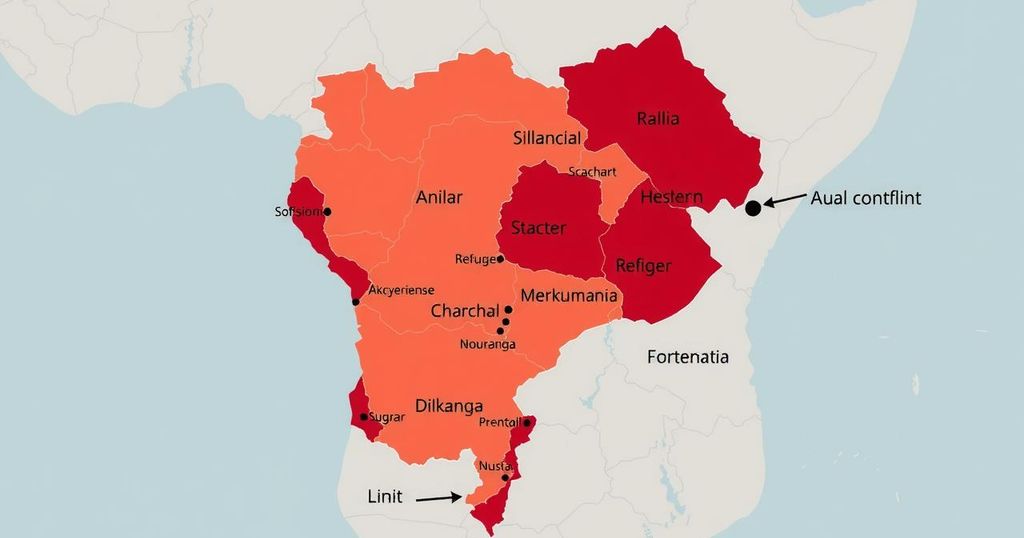Human Toll of the Conflict in the Democratic Republic of the Congo

The Democratic Republic of the Congo faces a severe humanitarian crisis due to ongoing violence from M23 rebels, resulting in over 7 million displaced individuals and significant food insecurity. The conflict has led to considerable fatalities and injuries. International attention is essential to address these challenges.
The Democratic Republic of the Congo is currently grappling with one of the most significant displacement and humanitarian crises worldwide, exacerbated by ongoing violence and instability. Recent conflicts have resulted in approximately 7,000 fatalities and numerous injuries, compelling millions to abandon their homes in search of safety.
The violence, primarily attributed to armed groups such as the M23 rebels, has intensified mainly in eastern DRC. In January, M23 captured Goma, the capital of North Kivu province, followed by Bukavu in February, marking a significant escalation in their campaign. The M23 group, formed in 2012 by former Congolese soldiers from the Tutsi ethnic group, had previously claimed that the government failed to implement peace accords meant to integrate its fighters into the Congolese army. This failure prompted their armed rebellion.
After disappearing from the spotlight for nearly a decade, M23 resurged in late 2021 and has since intensified hostilities in eastern DRC. The United Nations has indicated that Rwanda supports the rebels despite Kigali’s refutations. Tensions escalated in December 2024 after failed peace talks between DRC and Rwanda concerning M23, resulting in M23’s capture of Goma by the end of January 2025. The rebels then swiftly took control of Bukavu in February and Walikale in March, disregarding ceasefire requests.
The conflict has created an immense displacement crisis within the DRC, affecting over 7 million people, including approximately 3.8 million in the eastern provinces. Between November 2024 and January 2025 alone, nearly 780,000 individuals were displaced. According to the UN Refugee Agency, over 100,000 refugees have fled to neighboring countries since January, with most seeking refuge in Burundi and Uganda.
The humanitarian situation is dire, particularly in Goma, where security concerns impede aid delivery to those in urgent need. As of prior to the latest escalation, approximately 21 million individuals already required humanitarian assistance, representing the highest number globally. By the end of 2024, the combination of armed conflicts and soaring food prices pushed nearly 25.6 million people into acute food insecurity—nearly a quarter of the population—while looting and targeted attacks on humanitarian organizations have further hampered relief efforts.
The Democratic Republic of the Congo is embroiled in a significant humanitarian crisis, with millions displaced due to escalating violence, primarily from armed groups like the M23. The situation is exacerbated by dire food insecurity and impediments to aid delivery. With international concerns growing, it is crucial for the global community to address the conflict and its humanitarian repercussions effectively.
Original Source: www.aljazeera.com







